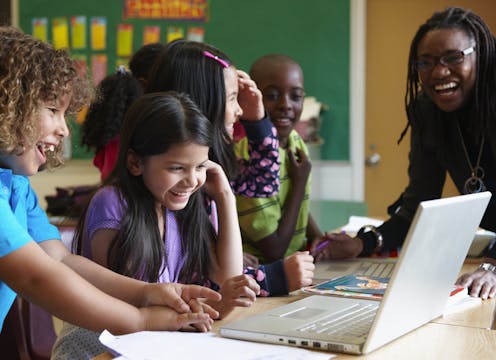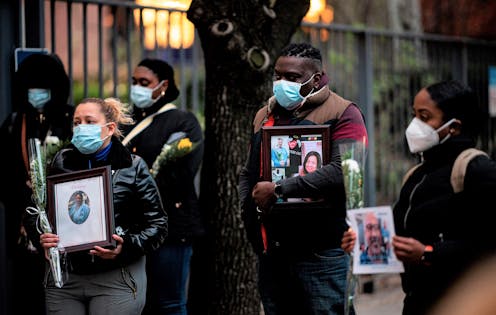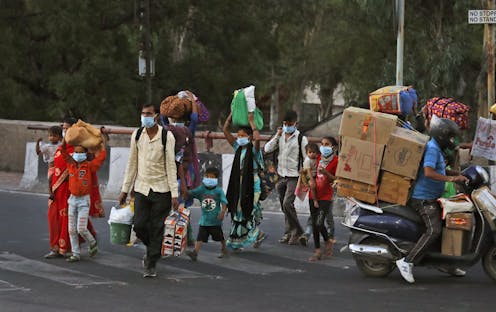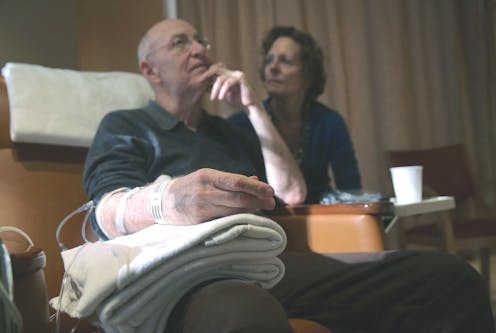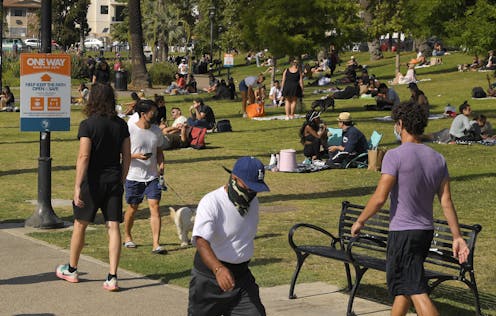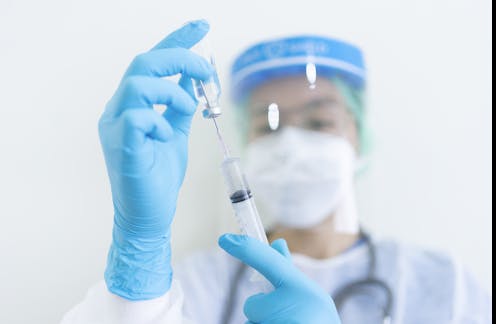How the Postal Service helped stamp identity on America – and continues to deliver a common bond today
- Written by Amy Werbel, Professor of the History of Art, Fashion Institute of Technology (FIT)
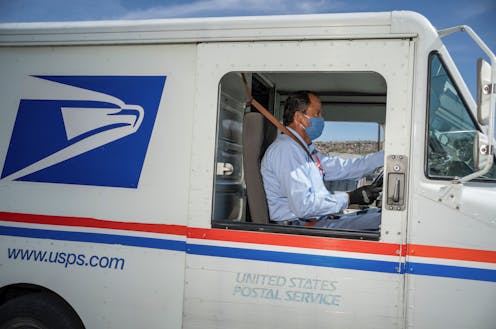 United States Postal Service mail carrier Frank Colon, 59, departs on his delivery route at the Remcon Circle Post Office amid the coronavirus pandemic on April 30, 2020 in El Paso, Texas.PAUL RATJE/AFP via Getty Images
United States Postal Service mail carrier Frank Colon, 59, departs on his delivery route at the Remcon Circle Post Office amid the coronavirus pandemic on April 30, 2020 in El Paso, Texas.PAUL RATJE/AFP via Getty ImagesAmericans overwhelmingly support a federal bailout for the cash-starved United States Postal Service. They view the USPS as a...


